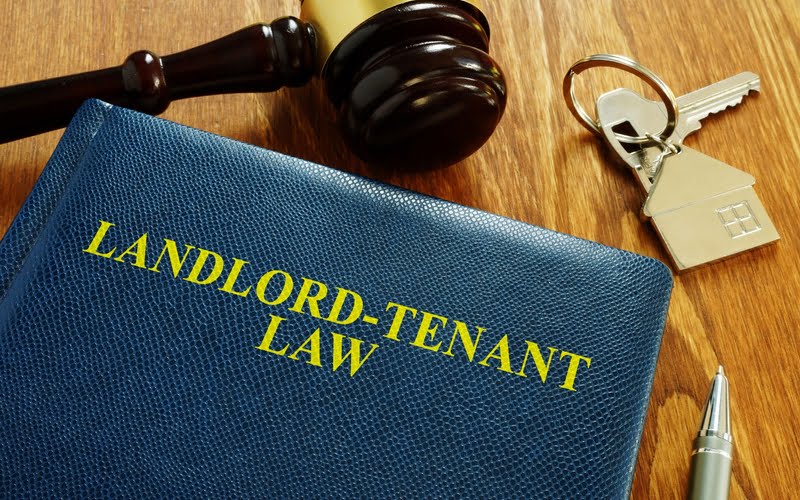Last Updated on March 18, 2024 by Kelvin Nielsen
Are you looking to learn about renters’ rights in Connecticut? If you are, this blog has you covered! Here’s everything you need to know regarding the topic.
Under Connecticut landlord-tenant law (Connecticut General Statutes Title 47A, landlords have certain rights and responsibilities. (Here is a guide on landlord responsibilities in CT).
As a renter, it’s important to understand your rights to protect yourself against possible exploitation or abuse by your landlord. CT law guarantees your right to peace and quiet after signing the lease.
So, what rights do you exactly have as a tenant in Connecticut? Well, continue reading to learn more.
Renters’ Rights in Connecticut
Under Connecticut law, a lease can be established in either of three ways. That is, through a written document, a verbal agreement, or after acceptance of a payment as rent. After this, both parties automatically obtain certain rights and responsibilities under federal, state, and local laws.
It goes without saying that these rights cannot be waived regardless of what the rental agreement says.
Below is a list of those rights.
#1: Right to live in a habitable rental property.
In Connecticut, a landlord must legally provide a habitable rental property. In other words, the property must meet the state’s basic health, safety, and building codes. The property must, among other things, have:
- Heating
- Hot water
- Sufficient garbage receptacles
- Working smoke and carbon monoxide detectors
- Free from pests, such as termites, ants, and roaches
#2: Right to have repairs done within 15 days.
Connecticut law requires landlords to make requested or needed repairs within a reasonable time. Specifically, your landlord must respond within 15 days.
If the landlord fails to do so, you may be able to exercise certain rights. Including, suing for damages, or break the lease without penalty.
#3: Right to a proper eviction process.
Your landlord cannot evict you for just any reason. They must have a legitimate reason to evict you from your rented premises. The only legally justified reasons for tenant eviction in Connecticut are as follows.
- Failure to pay rent
- Causing a lease violation
- Refusing to leave after the lease expires
- If the landlord or their family member wishes to move in themselves
- If the landlord no longer wants to rent out the property
- Refusing to accept a rent raise after proper notification
- Engaging in criminal activity while at the rental premises, such as prostitution or illegal gambling.
Your landlord cannot try to evict you for discriminatory, retaliatory, or ‘self-help’ reasons.
#4: Right from being retaliated against.
It’s illegal for a landlord in Connecticut to retaliate against a tenant for exercising a protected action, such as joining a tenants’ union or reporting them to a government authority due to unlivable conditions.
Examples of landlord retaliation include raising rent, threat of eviction, physical intimidation, and reduced services. Such actions are illegal!
#5: Right to the return of your security deposit.
Connecticut landlords must abide by certain rules when it comes to a tenant’s security deposit. The amount must typically not exceed 2 months’ rent, store the deposit in an escrow account, and make allowable deductions.
Also, the landlord must return it (or whatever portion remains) within 15-30 days after you move out.
#6: Right to terminate a periodic lease.
Under Connecticut lease termination laws, a tenant may be able to terminate their lease after serving proper notice. The notice to serve will depend on how frequently you pay rent.
If you pay rent monthly, then you must provide the landlord with a 30-days’ advance notice before moving out.
You may also be able to break a fixed-term lease early if you have a legally justified reason. Examples of such reasons include active military duty, uninhabitable unit, and domestic violence.
#7: Right to a proper rent raise.
Connecticut is among the list of states without a rent control law. Also, state law prohibits local jurisdictions from enacting their own rent control laws. Some cities and towns, however, have a fair rent commission, which prohibits landlords from raising rent ‘harshly and unconscionably’.
When it comes to raising rent in Connecticut, the following are some of the things that your landlord cannot do.
- Raise rent during a fixed-term lease. Unless the lease allows it, the landlord must wait until the current lease ends to raise rent.
- Raise rent out of retaliation.
- Raise rent due to a tenant’s race, color, nationality, familial status, or any other protected class.
There are no notice requirements when it comes to raising rent in Connecticut.
#8: Right not to be discriminated against.
Both the Federal Fair Housing Act (FHA) and Connecticut state law prohibit landlords from discriminating against their tenants on the basis of certain protected classes. The federal law protects tenants against discrimination on the basis of their:
- Race
- Color
- Religion
- Familial status
- Sex
- Disability
- Nationality
State law adds additional protection for tenants on the basis of ancestry, age, marital status, and lawful source of income.
#9: Right to refuse landlord entry.
Sure, landlords in Connecticut have a right to enter rented premises to perform important responsibilities. However, you may be able to refuse entry by your landlord if they do any of the following.
- Violate your privacy. A Connecticut landlord must provide a tenant with a “reasonable” notice prior to entering their rented premises.
- Have a legitimate reason for entry. Examples of such reasons include maintenance, inspections, property showings, and emergencies.
- Not enter during normal business hours. Connecticut landlords must enter only at “reasonable” times. This is usually taken to mean between 8:00AM and 5:00PM.
#10: Right to be provided with certain mandatory disclosures before moving in.
Landlords have a responsibility of making certain disclosures to potential tenants before they can sign the lease. As a renter in Connecticut, your landlord must provide you with information regarding:
- Lead-based paint concentrations in the unit.
- Names and addresses of the person responsible for managing the property.
- Information on whether the rental unit is located in a common interest community.
- The maintenance and repair history of the operative fire sprinkler system.
- If the property is located adjacent to a property infested with bed bugs.
- The address of the depository where they are holding your security deposit.
Frequently Asked Questions (FAQs): What Are My Rights As A Tenant In Connecticut?
Q: How much time does a landlord have to give a tenant to move out in CT?
A: In a periodic agreement, the amount of notice the landlord must give you to move out will depend on the rent payment frequency. If you pay rent on a monthly basis, then the landlord must provide you with a 30 days’ advance notice.
In a fixed-term lease, the amount of notice to serve a tenant will depend on the violation the tenant has committed. For instance, if you fail to pay rent when it is due, the landlord must serve you a 3-Day Notice to Pay. This will give you 3 days to either pay rent or move out. If you don’t move out, the landlord can escalate the issue by filing a lawsuit in court.
Q: What are the new rent laws in CT?
A: In June 2023, lawmakers in Connecticut passed the “Senate Bill 998”. This was in an effort to address the state’s growing housing crisis by making housing affordable and accessible to the lowest income- and most marginalized renters.
The following is a summary of the new rent laws.
- Landlord must charge $50 or below in tenant screening report fees.
- Fees on late rent must not exceed $5 per day, $50 in total, or 5% of the overdue rent. Landlords must also provide tenants with a 9 day grace period before imposing the late rent fees.
- Landlords must not charge more than one late fee per rental period.
- Landlords must return tenants’ security deposits within 21 days after the tenant moves out.
Q: What are landlords responsible for in CT?
A: Landlords are responsible for a number of things in the state of Connecticut. Including, providing a habitable rental property, making repairs within a reasonable time, returning the security deposit within 21 days after a tenant moves out, and carrying out a proper eviction process.
Here is a comprehensive guide on landlord responsibilities in Connecticut.
Q: Can a landlord kick you out in CT?
A: Yes! A landlord can kick you out in CT as long as they have obtained a court order. But even then, only the sheriff can carry out the physical eviction.
The landlord must follow the statewide eviction process to carry out a successful eviction. Which includes:
- Serving an appropriate eviction notice.
- Filing a lawsuit in court.
- Attending court hearing.
- Obtaining a court order.
Connecticut law also provides tenants with a right to fight an eviction under certain circumstances.
Conclusion
As a renter, these are the rights you enjoy under Connecticut landlord-tenant law. If you have a specific question, kindly leave a comment below for expert advice.
Disclosure: The content herein isn’t a substitute for advice from a professional attorney. It’s only meant to serve educational purposes. If you have a specific question, kindly seek expert attorney services.
Sources: www.jud.ct.gov/, Connecticut General Statutes Title 47A, Landlord Responsibilities in Connecticut, Connecticut Judicial Branch,

Amanda Rose is a seasoned landlord with 13+ years of expertise in overseeing diverse properties. Her adept management spans single and family homes, along with multi-family apartments and condos, across Wyoming and South Dakota. Her commitment and proficiency have cemented her status as a thriving property management professional.
She is a member of the following organizations: Wyoming Landlord’s Association, National Association of Residential Property Managers (NARPM), Wyoming Apartment Association, South Dakota Multi-Housing Association (SDMHA), and South Dakota Landlord Association (SDLA).







